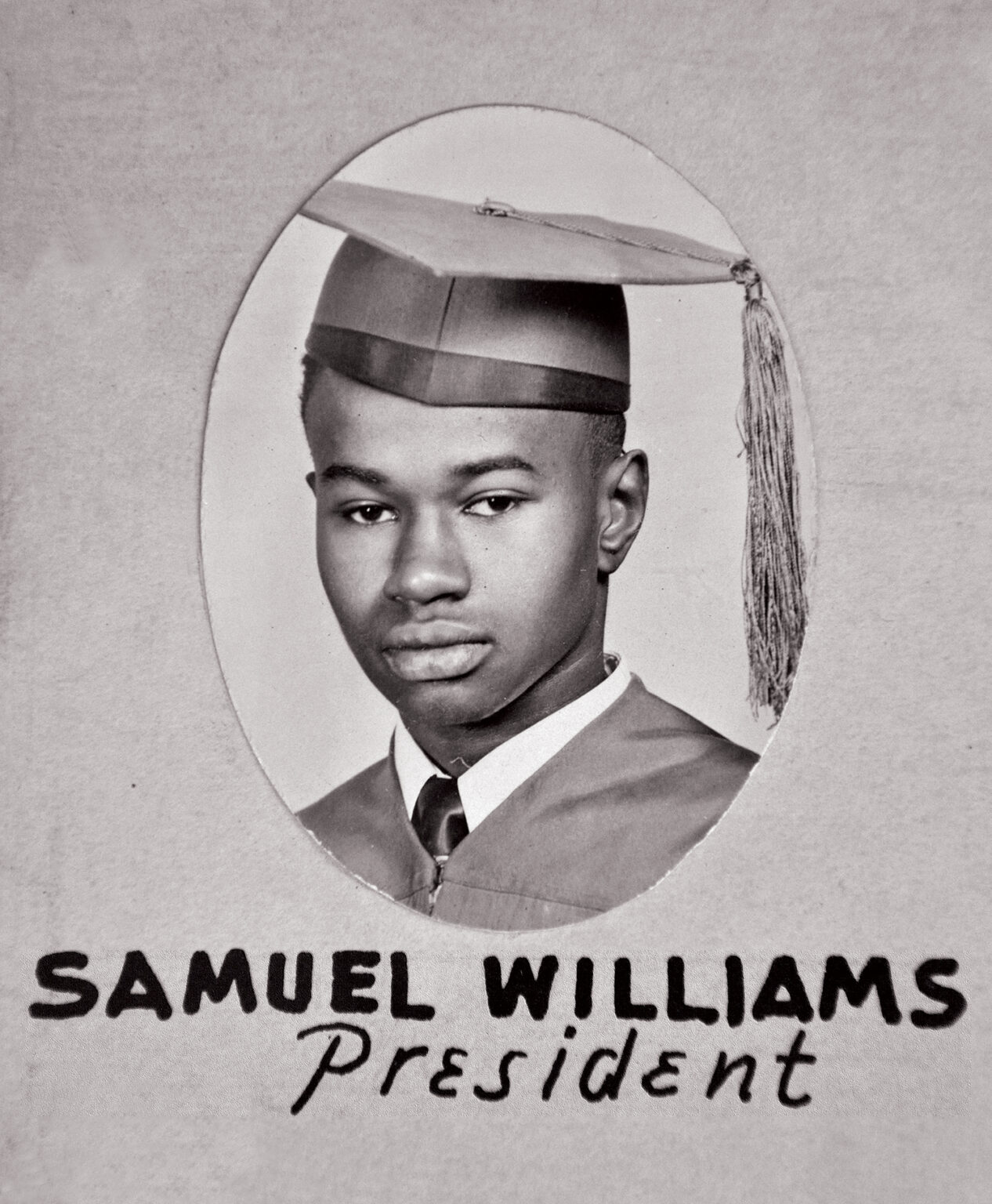RESOURCES
PEOPLE
Rev. Samuel Williams Jr.
1933-2025
Samuel Williams Jr. was born in Harlem Hospital in New York City in 1933.
Rev. Williams played a pivotal role in the 1951 student strike at Robert Russa Moton High School, joining Barbara Johns and fellow students in protesting the substandard conditions of their segregated school.
As pastor of Levi Baptist Church, Rev. Samuel Williams Jr. was a central figure in the struggle for civil rights and education in Prince Edward County during the public school closings of 1959-1964. When white officials chose to defund and close the public schools rather than comply with court-ordered desegregation, Williams stepped into a leadership role that would define his legacy-as both a spiritual guide and a civil rights activist. He later went on to lead congregations at Farmville’s First Baptist, and Beulah Baptist Churches.
As president of the Prince Edward County branch of the NAACP during the crisis, Rev. Williams organized and led protest marches, mass meetings, and community mobilization efforts to demand the reopening of the schools. He worked in direct partnership with national organizations such as the NAACP Legal Defense Fund and the American Friends Service Committee to coordinate relief and support for displaced Black students. Under his guidance, Levi Baptist Church became a hub of civil rights activity— a safe space where strategy sessions were held, families found support, and national attention was focused on the injustice in Farmville.
Rev. Williams assisted in the creation of the Prince Edward County Free School system in 1963-64, a temporary, federally funded initiative that provided education to hundreds of children who had gone without formal schooling for nearly five years. He helped recruit volunteers, raise awareness, and ensure families had access to these vital services. Though firm in his resistance to injustice, he never lost sight of the need for reconciliation. In the years following the reopening of schools, Williams continued to preach a message of healing and unity-calling on all citizens to confront the past and work toward a more equitable future. In recognition of his lifelong contributions to the community, the town of Farmville honored Rev. Williams in December 2023 by renaming Watkins Street to Williams Way.
Rev. Williams died on February 3, 2025 at the age of 91.
